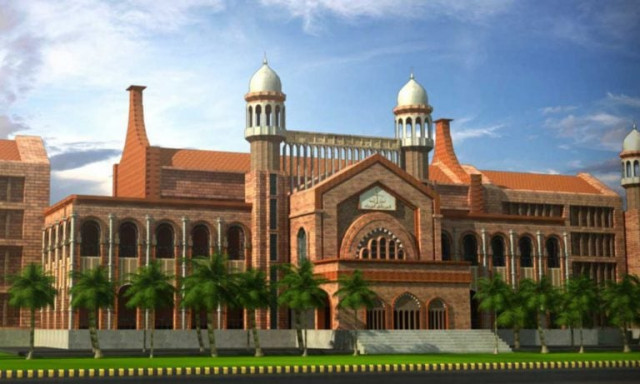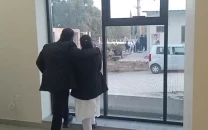FBR faces embarrassment at LHC
Court questions competency of people responsible to impose new taxes

The Lahore High Court LHC) on Monday expressed “doubt on the competence” of a senior member of the Federal Board of Revenue (FBR), who could not defend his actions during a hearing in a case about the constitutionality of the 20% deemed income tax on the real estate.
The court’s stricture against Afaque Ahmed Qureshi again brings into the light the taxation policy-making process of the federal government, weeks after Prime Minister Shehbaz Sharif ordered an inquiry to determine how Rs6,000 fixed tax had been imposed on traders in their electricity bills.
“The court has doubt on the competence of Member (Policy) holding this post, who undeniably has proposed this provision of law and is taking decisions for the most important department of Pakistan, particularly when Pakistan is facing financial emergency”, according to an interim order issued by the LHC.
The petitioners have challenged the federal government’s decision to charge 20% deemed income tax imposed on the real estate sector in the budget to raise Rs15 billion in taxes. However, under the Constitution, the federal government cannot impose income tax on the real estate sector, which is a provincial subject.
The government had introduced a new Section 7E in the Income Tax Ordinance whereby a resident who derives income equal to 5% of the fair market value of the capital assets situated in Pakistan, will be charged tax at the rate of 20%. The FBR has said that the effective tax rate is 1%.
In June, Qureshi said that the government would generate revenue of Rs30 billion from the deemed income.
However, before approval of the law, the government made certain changes to the definition of properties that would be subjected to the levy and resultantly the additional revenue estimates were reduced to Rs15 billion.
Qureshi is a grade-20 officer of the Inland Revenue Service and is serving as Member Policy –a position that has, in the past, been filled by only grade-21 officers. The member policy is also responsible for holding parleys with the International Monetary Fund (IMF).
The Policy Wing’s few actions in the past have also caused embarrassment for the government, which included imposition of taxes on the foreign diplomats and foreign missions. The withdrawals of tax concessions given to Chinese power plants under sovereign agreements also created irritants between Pakistan and China relations.
The interim order stated that the court confronted Qureshi about the entry 50 of the legislative list of the Constitution but “he has shown his inability to respond”. The court further asked him that till the decision about the legality of the new tax, whether the petitioners and other taxpayers, who were caught “under the mischief of Section 7E can be accommodated”. Qureshi replied in negative, according to the order.
The order noted that the court tried to understand from the FBR lawyer regarding the mechanism of proposing any amendment to the taxation laws to ensure competence for imposing proposed tax, “he after consulting the member Policy present in the court, answered that his aspect is looked into by the Secretary Law”. The court was not satisfied with the replies.
The LHC has adjourned the case hearing till Wednesday.
A senior official in the FBR said that it was not the FBR member policy, who took such decisions on his own. The
Policy Wing of the FBR drafts the law on the directions of the government. It then goes to the Law Division for vetting and then after approval of the finance minister is placed before the cabinet.
Few weeks ago Finance Minister Miftah Ismail had decided to withdraw the section 7E but he was not permitted by the IMF. The reason for withdrawing the levy on the real estate sector was not about its constitutionality but about the pressure from the real estate sector that was not willing to pay this tax.
The sources said that the FBR proposed the deemed income tax by getting inspired from a similar levy imposed by India. The FBR senior official said that the section 7E had been discussed thoroughly at the level of the law minister and it was not right to only blame the tax department.
But the court’s interim order suggests that it was not the constitutionality of the law rather the replies of the Member Policy that led to issuance of the stricture against the member IR Policy.
Qureshi is in the promotion zone and was considered for elevation to grade-21 by the Central Selection Board. The minutes of the CSB have not been yet issued, which could suggest whether the officer has been promoted this time, as he had been deferred in the past.



















COMMENTS
Comments are moderated and generally will be posted if they are on-topic and not abusive.
For more information, please see our Comments FAQ